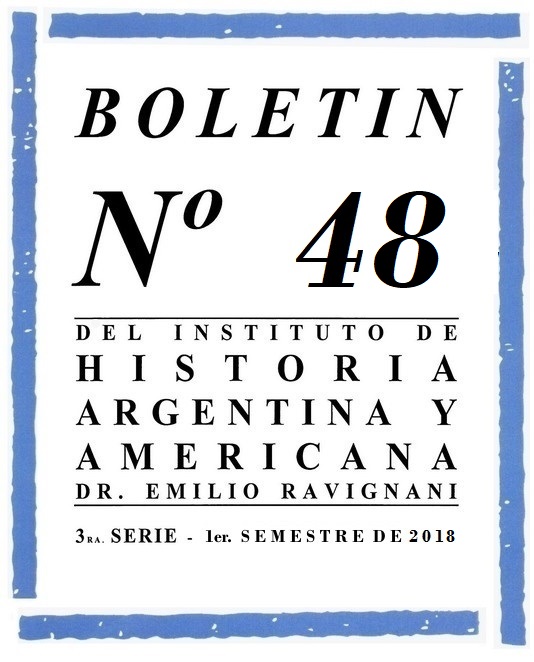“Scattered, Banished, and Errant...”. Expulsion throughout the revolutionary decade
Abstract
This paper focuses on the process by which the exclusion of the enemy was institutionalized in the Río de la Plata throughout the revolutionary decade as one way of resolving political conflicts. Under the form of banishment, deportation, confinement, estrangement or expatriation, the analysis of the political-legal framework of these measures, the itineraries of the excluded, the role and influence of the host groups as well as the solidarity networks that supported them clearly demonstrate the political importance of the “places of exclusion”. Even though, as a power mechanism, expulsion from a territory enables us to draw some parallels with the Bourbon period, our conclusions refer to its special meaning and scope in the context of the new revolutionary imaginary.Downloads
The copyright is transferred to the Boletín, but the authors may retrieve them and reproduce their work in other media or formats by means of a written request to the Editorial Committee. In such cases, the Boletín will be cited as the first publication of the work.
The works are licensed under a Creative Commons Attribution-NonCommercial 4.0 International License, which allows others to share the work with an acknowledgment of their authorship and initial publication in this journal.
Also, by written request to the Editorial Committee of the Boletín, the authors may separately establish additional agreements for the non-exclusive distribution of the version of the work published in this journal (for example, placing it in an institutional repository or publishing it in a book), with an acknowledgement of its initial publication here. No commercial uses are allowed.



















